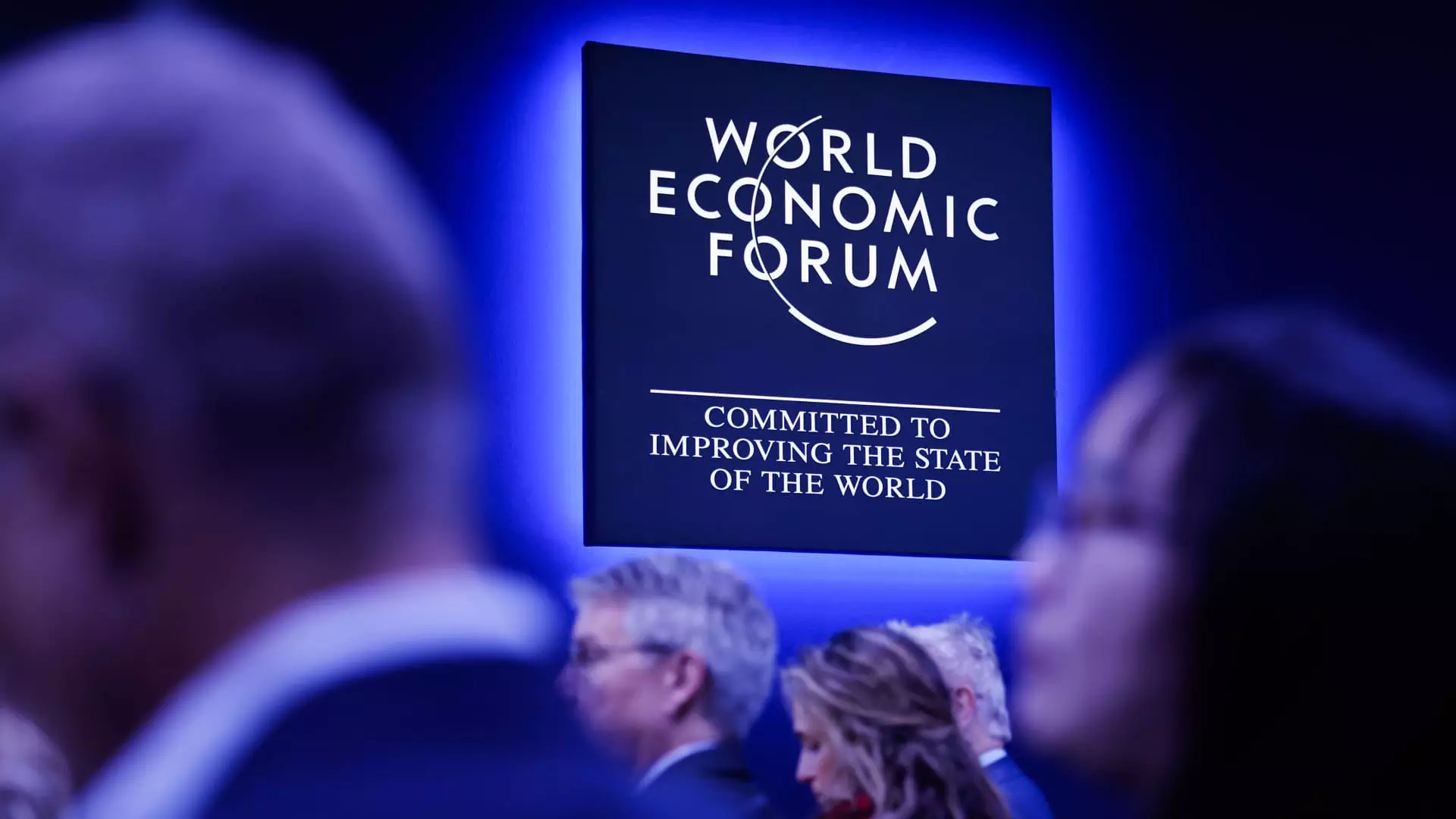At the annual World Economic Forum (WEF) in Davos, Switzerland, the buzzwords echoing through the halls are “diversity,” “equity,” and “inclusion,” often abbreviated as DEI. These terms have gained prominence not only in political discourse but also within the corporate sphere as organizations grapple with their implications and applications. The evolving dialogue surrounding DEI reflects broader societal values and tensions, particularly in context with recent political developments that have challenged the frameworks established to promote these principles.
The conversation about DEI took a striking turn during a virtual appearance by former President Donald Trump at Davos, where he vehemently criticized what he termed “discriminatory diversity, equity, and inclusion nonsense.” His comments align with actions taken during his administration, notably an executive order aimed at dismantling federal DEI initiatives. This move, which primarily affected federal employers, hinted at a potential broader application to private institutions, signaling a fundamental challenge to current DEI efforts. Trump’s rhetoric stressed a shift toward a “merit-based” system, indicating that the political landscape surrounding DEI is not just about changing policies but reversing the perceived progress made in recent years.
Despite the political headwinds, many corporate leaders at Davos expressed a commitment to maintaining their DEI initiatives, albeit with a recognition that the language and methods may adapt over time. Executives articulated a sense of responsibility to engage with diverse communities, pledging that their efforts would not waver in the face of external pressures. For instance, leaders from tech and finance sectors emphasized the need for inclusivity as a foundational element not only for ethical reasons but also for business performance.
Companies like Nasdaq have reiterated their belief that fostering a culture of acceptance and diverse thought leads to better results. This notion of inclusivity isn’t merely performative; it is increasingly seen as a strategic necessity to thrive in today’s competitive market. The focus on “diversity of views” enhances innovation and drives engagement, reinforcing the idea that varied perspectives foster problem-solving and creativity.
An interesting point raised by executives involved the connection between DEI initiatives and consumer behavior. Companies have recognized a growing demand among consumers for brands that are not only aware but also proactive in promoting inclusivity. The integration of “inclusive AI” in technology and services demonstrates a commitment to ensuring that diverse voices are represented both in product development and user engagement. This reflects a shift towards viewing DEI not merely as a moral imperative but as a key driver of business success.
However, the discourse is not without its critiques. Some leaders acknowledged a backlash against certain DEI initiatives, suggesting that a subset of ineffective or poorly perceived programs had cast a shadow over the entire movement. There is recognition that the pendulum has swung, with debates emerging around the efficacy and execution of diversity initiatives. Business leaders are increasingly aware that genuine diversity goes beyond superficial measures; it requires substantive changes in organizational culture and practices.
One important takeaway from conversations in Davos is the compelling data that supports diversity. Numerous executives cited studies demonstrating that diverse teams yield better outcomes—be it in productivity, problem-solving, or risk management. Yet, how these teams are built and sustained requires ongoing dialogue and adaptability, especially as legislative frameworks may shift.
The Imperative for Meritocracy
In industries characterized by rapid evolution, such as artificial intelligence, the imperative remains clear: organizations must be meritocratic, seeking the best talent without bias. Executives acknowledge that high performance and diverse thought are not mutually exclusive, but instead, reinforce one another. The focus is on operational success through innovation, which necessitates attracting diverse, high-caliber professionals.
The conversation surrounding DEI is evolving, shaped significantly by external political dynamics and internal corporate strategies. While the corporate world grapples with these changes, the imperative for a diverse and inclusive workplace remains strong. Leaders at the World Economic Forum in Davos reflect a determination to uphold the values of DEI, reinforcing that these principles are integral to not only social progress but to ongoing business success. As this dialogue continues, companies must navigate both the challenges and opportunities presented by a shifting landscape, ensuring that their DEI initiatives resonate meaningfully within and beyond their organizations.

